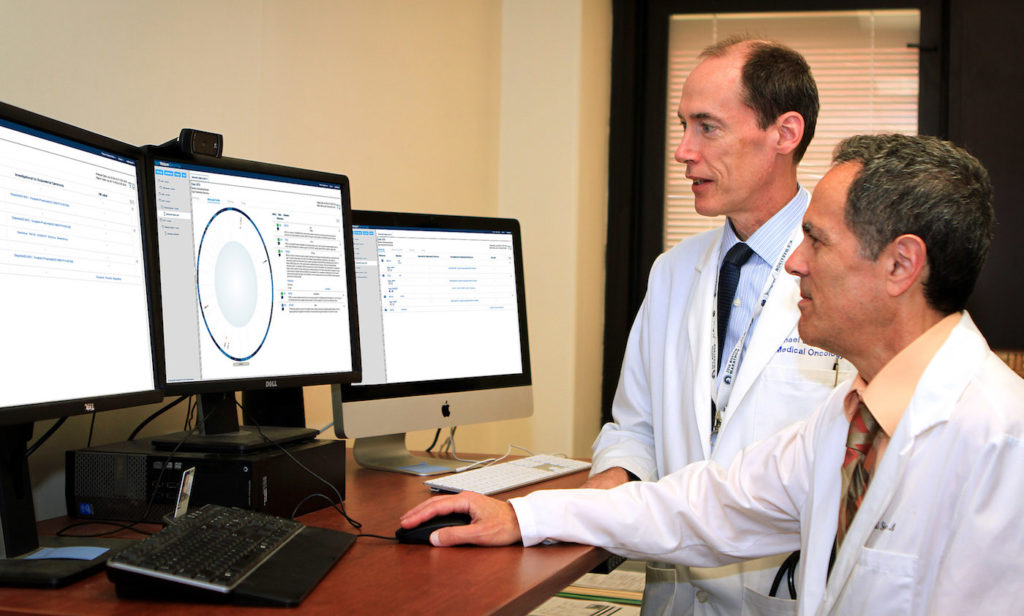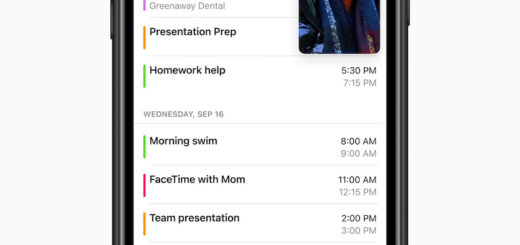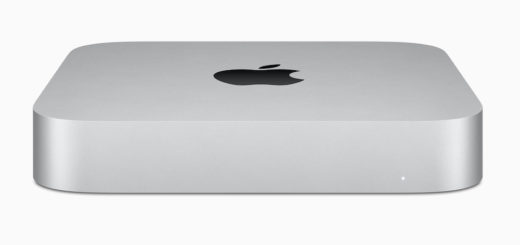Apple Just got Permission to Change Healthcare

Martha Hoelzer/Feature Photo Service/IBM
Apple just got put on the fast track to test new systems that may, or may not, be good for your health.
The company has been named as one of nine companies selected to join a pilot scheme designed to accelerate digital health innovation by the U.S. Food and Drug Administration.
Right to experiment?
FDA Commissioner Scott Gottlieb, M.D. announced the companies during his keynote address at the AdvaMed MedTech Conference in San Jose, California.
The FDA’s Pre-cert pilot program is a bit weird. As I understand it, it means that when deciding if a company can trial a digital health solution the FDA will look at a company’s track record, rather than at it s product. The idea is that the FDA wants to make it easier for firms to reduce the number of regulatory hurdles that need to be overcome before they can being marketing new digital health tools.
I want to say that my concern in this is that these solutions may at times be of life or death importance, and I am concerned that rather than reducing regulation in order to foster digital health solutions development, regulators should invest in more regulators to accelerate the existing process.
There is some regulation, according to the FDA:
“As part of the Pre-cert pilot program, participants have agreed to provide access to measures they currently use to develop, test and maintain their software products, including ways they collect post-market data. Participants also agreed to be available for site visits from FDA staff, and provide information about their quality management system. This sharing will help the FDA continue to build its expertise in these areas, while giving the agency the information it needs to provide proper oversight of these products and firms.”
All the same, I remain concerned that digital health solutions truly work to keep people healthy.
Despite this, Apple’s huge investments in health related expertise and technology may presage positive innovation in this space — I’m just a little concerned we end up with solutions that work, rather than a return to unregulated snake oil salesman and quack cures. Digital health should make you healthy, shouldn’t it?
The PR
Here is the complete press release:
“The goal of this new approach is for the FDA to, after reviewing systems for software design, validation and maintenance, determine whether the company meets quality standards and if so, to precertify the company. With the information gleaned through the pilot program, the agency hopes to determine the key metrics and performance indicators for precertification and identify ways that precertified companies could potentially submit less information to the FDA than is currently required before marketing a new digital health tool as part of a formal program. The FDA is also considering, as part of the pilot program, whether and how, precertified companies may not have to submit a product for premarket review in some cases.
“Our method for regulating digital health products must recognize the unique and iterative characteristics of these products,” said Dr. Gottlieb. “We need to modernize our regulatory framework so that it matches the kind of innovation we’re being asked to evaluate, and helps foster beneficial technology while ensuring that consumers have access to high-quality, safe and effective digital health devices. These pilot participants will help the agency shape a better and more agile approach toward digital health technology that focuses on the software developer rather than an individual product.”
The FDA launched the Pre-cert pilot program on July 27, as part of the agency’s Digital Health Innovation Action Plan. The plan outlines the agency’s vision for fostering digital health innovation while continuing to protect and promote public health by providing clarity on medical software provisions of federal legislation passed in 2016 (21st Century Cures), adding expertise to the digital health unit and initiating the FDA Pre-cert pilot program.
The pilot participants represent a wide range of companies and technology in the digital health sector, including small startups and large companies, high- and low-risk medical device software products, medical product manufacturers and software developers. Participants selected include:
- Apple, Cupertino, California
- Fitbit, San Francisco, California
- Johnson & Johnson, New Brunswick, New Jersey
- Pear Therapeutics, Boston, Massachusetts
- Phosphorus, New York, New York
- Roche, Basel, Switzerland
- Samsung, Seoul, South Korea
- Tidepool, Palo Alto, California
- Verily, Mountain View, California
The FDA received interest in the program from more than 100 companies. In selecting the participants, the agency considered several factors including company size, demonstrated record of quality and organizational excellence, clinical focus area and the risk profile of the product. The FDA’s selection process identified companies that represent different perspectives and unique approaches to digital health technology development.
“We are extremely appreciative of the tremendous interest in participating in the FDA Pre-cert pilot program,” said Bakul Patel, associate director for digital health in the FDA’s Center for Devices and Radiological Health. “The number of applicants speaks to the significant impact this approach could have on facilitating timely advancement of software that has the potential to benefit health. The diversity of the Pre-cert pilot program participants means that we will receive a variety of input on how the industry defines organizational excellence and other key performance indicators. This feedback will be invaluable as we progress through the pilot and onto the next stages of digital health oversight.”
As part of the Pre-cert pilot program, participants have agreed to provide access to measures they currently use to develop, test and maintain their software products, including ways they collect post-market data. Participants also agreed to be available for site visits from FDA staff, and provide information about their quality management system. This sharing will help the FDA continue to build its expertise in these areas, while giving the agency the information it needs to provide proper oversight of these products and firms.
The FDA plans to share public updates about the Pre-cert pilot program via the pilot program webpage as well as through stakeholder meetings, including a January 2018 workshop. Throughout the pilot, the FDA will solicit feedback from the selected participants, as well as from industry, stakeholder groups and the public.
The FDA, an agency within the U.S. Department of Health and Human Services, protects the public health by assuring the safety, effectiveness, and security of human and veterinary drugs, vaccines and other biological products for human use, and medical devices. The agency also is responsible for the safety and security of our nation’s food supply, cosmetics, dietary supplements, products that give off electronic radiation, and for regulating tobacco products.




